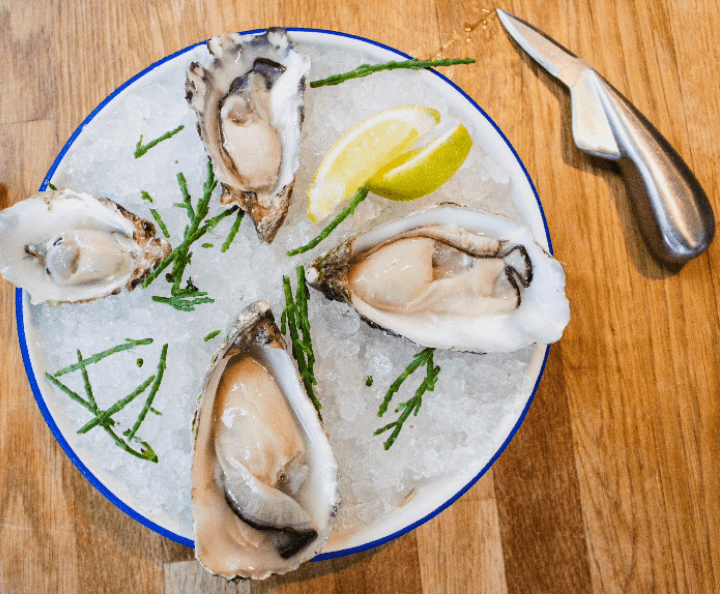Oysters can cause a person to feel drunk due to their high level of alcohol content and other proteins and minerals that can send their blood alcohol level skyrocketing very rapidly.
There is an enzyme called tyrosine decarboxylase, which degrades the drinking alcohol into neurotransmitter dopamine that makes you feel intoxicated or euphoric, just like when you drink alcoholic beverages.
If oysters are eaten without adding alcohol you are safe from this effect. But if they are consumed with alcohol, it will create a kind of aphrodisiac effect where the chemicals in them work as catalysts in aiding the conversion of alcohol from food sources into serotonin in the brain.
What do Oysters have to do with alcohol?
It is said that oysters are an aphrodisiac. This may be because they contain a chemical called tyrosine which has been shown to increase dopamine levels, leading to increased sex drive.
It’s also possible that the high zinc content in oysters increases testosterone production and sperm count. Oysters have long been associated with positive sexual effects as folklore dating back to ancient Rome used them in fertility treatments and love potions recipes. Some other interesting facts about oysters:
Oysters are a common source of food for humans. They can be eaten raw, cooked, or smoked and have been popular as far back in history as the Roman Empire. Oysters are very nutritious because they contain protein and iron and vitamins A, B12, D, E, and K. In some parts of the world like Japan, for example, oyster farming is considered an important economic activity that generates more than $650 million annually in revenue.
Oysters can grow to be quite large, and they live for many years
Giant oysters can grow to be quite large, and they live for many years. They are the oldest living creatures on earth. They have been around since before dinosaurs roamed the Earth, and some of them still exist today. Giant oysters live in all oceans, but they prefer warm water that is shallow enough for them to reach the surface at low tide. These giants are found off coasts around Asia, Australia, South America, and Africa – from Madagascar to Brazil. These ancient animals must come up with air every day, or else their bodies will suffocate under the weight of their shells which can weigh more than a tonne!
People consume oysters raw or cooked
Oysters are one of the most popular plates of seafood. They are consumed raw or cooked and come in many varieties, including bluepoint oysters, Kumamoto, creme de la cremes, black pearls, and more. The taste can vary depending on the region and how they were raised. Some people say that there is no bad way to eat them, while others may prefer them with a bit of lemon juice squeezed over top for some added flavor. Oysters can be found all year round, but their peak season varies by location. For example, you might find fresh oysters during the winter months when it’s not too cold outside whereas other locations might only offer Oysters during the summertime when they’re plump and juicy.
We eat oysters because they contain high levels of iron, zinc, vitamin B12, and omega-3 fatty acids.
Oysters do not have any bones, but their meat is rich in calcium, magnesium, copper and zinc, and iron and vitamin B12. The health benefits of eating oysters include:
- Increased immunity due to the high levels of vitamin c.
- Reduced risk of heart disease owing to the omega-3 fatty acids present.
- Protection Against dementia for those whose diet does not include enough b12.
- Relief From arthritis pain for those who suffer from it due to its high level of copper.
Oysters protect our seashores from erosion by holding sediment in place when they die.
Oysters are one of the most important parts of our ecosystem. They serve as a natural filter, and their presence in large numbers can keep seashores from eroding.
Oysters have been around for over 400 million years, and they’re still here today because they play an integral role in maintaining healthy oceans. Oceans are crucial to all life on earth – even if you live in a city or town far away from any coast, your water comes from rivers that originate at sea level. If we allow erosion to happen, we’ll be letting go of some control over how clean our drinking water is and how much salt is in it while also allowing more pollution into the ocean, which will negatively affect marine life like fish and shellfish.

